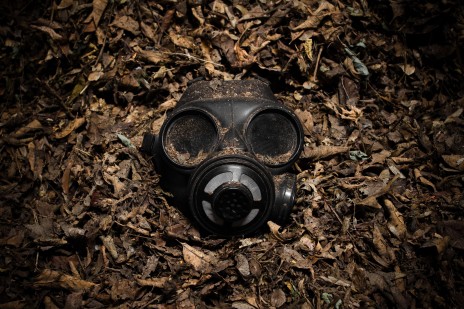
“Exposure” is a beautiful war-poem written by the English poet and soldier, Wilfred Owen. Published posthumously in 1920, after Owen’s death in 1920, this poem is a part of his collection of poems called “Poems” and deals with the theme of war and the conflicts and turmoil that arise in its wake. Narrated through the eyes of the soldiers stationed at the battlefield, the poem showcases the dark side of war and its effects on the lives and minds of these soldiers as they undergo the trauma it brings.
Exposure | Summary
In the very first line, Owen lays bare the harsh reality of the physical as well as mental agony that the soldiers stationed at the battlefield go through as they lie awake in nights, with chilly winds all around them, causing their heads to ache. An eerie silence prevails through the night, giving them all the more reason to be completely at alert for any sign of attack by the enemy. The dim, flickering flares that illuminate the darkness seem to confuse them, making their jobs even more difficult. Anxiety fills their souls and as they wait, constantly on edge, the soldiers whisper amongst themselves, wondering about what is next to come. However, to their disappointment, no significant event takes place.
As they continue their vigil, they hear the wind blowing through the barbed wires, sounding like an agonised man trapped within the sharp brambles of the wire. They can also hear the faint sounds of the firing of the guns towards the north, at some distance. These “rumbles” seem very far-off to them, almost as if belonging to war different from the one they are fighting and the soldiers wonder about the purpose of them being stationed at their current site. They cannot make sense of all that is happening and are unable to see the reason for which they are fighting this war. All that they are doing seems to make no sense to them as they question their presence at the battleground.
In the third stanza we see that this long night of waiting finally nears its end as dawn breaks over the horizon. The onset of morning makes the soldiers acutely aware of their miserable existence and a despair takes over their hearts. Everything else ceases to hold any significance for them; they have lost all faith. The only truths that they accept are the absolute realities that they face like the rain that drenches them to their bones, the stormy skies with its dark clouds that reflects their lowered spirits and incessant war that is going on around them. Nature seems to reflect their melancholy and the dawn, like an army general, attacks them with its army of wind, rain and thunder as they wait for something to happen. All their waiting is of no use as nothing happens yet again.
Suddenly, firing starts out of nowhere, breaking the passivity of the dawn and bullets start coming at them one after the other. However, to these soldiers, these bullets seem harmless as compared to the perilous snowstorm that surrounds them. The fierce wind swirls the snowflakes all around them, trapping them in the blizzard. Even as they watch this storm coming towards them, along with the bullets from the surprise attack, the soldiers continue to feel as if nothing new had transpired. All of this seems repetitive and mundane to their long-tormented selves.
Mesmerized by the snowflakes that creep in on their faces, the soldiers seek for shelter from the menacing storm. Terrified like a small, frightened animal, they let their survival instinct take over and huddle in the trenches for protection, all the while imagining that they were lying in the warm sun, surrounded by beautiful flowers and the music of the blackbird, so as to hold on to the little hope left in their hearts. Cramped up so, they wonder whether they are finally dying or not.
The dreams that their spirits have returned to their homes where they discover that the fires have all burned out with the embers are still red, glowing like precious stones. Their homes are now filled with the sounds of the happy crickets and cheerful mice who believe that the empty house now belongs to them. The soldiers come to the realization that the warmth of their house can no longer shield them, those happy times are long gone. The doors of their home are closed for them now and there is no hope of going back there. As this truth dawns on them, their thoughts return to their current reality of the war in which their death is certain.
Even though the sun keeps shining upon the rest of the world, these soldiers, now having accepted their inevitable death in the war, do not believe that it can provide them any warmth and shield them from the wrath of the snow. They have lost all faith in God, believing that he has abandoned them and left them to die in this battlefield. Having completely resigned to their fate, they harbour no ill-feelings and resentment towards god. Devoid of all hope, they are certain that the end is near, believing that this war, and the imminent death, was probably the purpose for which God had sent them on earth. They no longer hold on to their belief in God and losing all optimism, have surrendered themselves to fate.
In the final stanza, the soldiers predict that the frost which envelopes them would ultimately freeze them as well as everything around them. Be it the grounds or be it the hands and foreheads of the soldiers- the cold will spare none and lead to their demise. Other soldiers will come to bury their lifeless, shriveled bodies, will also have to face its wrath as they pick the dead bodies of their fellow men with hands trembling from the cold, stopping for a moment to look at the fallen men with whom they had shared camaraderie and known, albeit briefly. The dead men’s eyes are frozen like eyes. Yet, nothing happens. Even death has become so much a part of their daily life that it does not kindle any sort of feeling in these soldiers.
Exposure | Analysis
Set against the backdrop of World War I, Wilfred Owen’s “Exposure” highlights the hardships faced by the soldiers during the time of war and the constant sense of despair caused due to the monotony of their life at the battlefield as they wait and wait, but nothing actually happens. One of the leading poets during the time of World War I, Owen was himself a soldier and most of his works thus deal with the theme of war and its effects. Just like his other poems, “Exposure” too talks about the horrors and suffering of war and poignantly portrays the emotions of the soldiers fighting at the battle front, not knowing what waits for them in the near future. By using the collective “we” as the voice of the speaker, Owen lends a personal note to the verse and describes an event of which he himself was a part of.
In the eight stanzas of the poem, he perfectly manages to capture the despair and hopelessness that surrounds the soldiers as they fight in those horrific conditions. Talking about the collective sufferings of all the soldiers, Owen expresses his discontentment at the treatment meted out to the soldiers at the war zones. The repetition of the phrase “But nothing happens” brings to light the futility of war and also seeks to contend the notion that war is all about action and adventure by showing the passive monotony that is as much a part of war as the action-packed battles. Owen felt that death is inevitable when one is on the war front and thus, the poem carries a tone of gloom and agony.
The language used is passionate and emotive and manages to successfully stirs the emotions of the reader’s heart. The loss of faith in men and the sense of futility they harbor with respect to what they are doing and why they are doing that is one of the central themes of the piece. The war had led to a decline in faith among the people, especially amongst the soldiers who, after having renounced their belief in God or the possibility of a life after death, have completely surrendered to the harsh reality of war and death that constantly looms over their heads. The noise of war surrounds them at all times and they feel like they have nothing left to live for.
Composed of eight stanzas of five lines each, with the last line in each stanza being considerably shorter, the poem follows the rhyme scheme of abba, with many of the rhymes being half- rhymes. Alliteration and assonance have been used generously. All in all, the poem is a fine piece of work and conveys the brutalities of war in a way that touches the heart.


